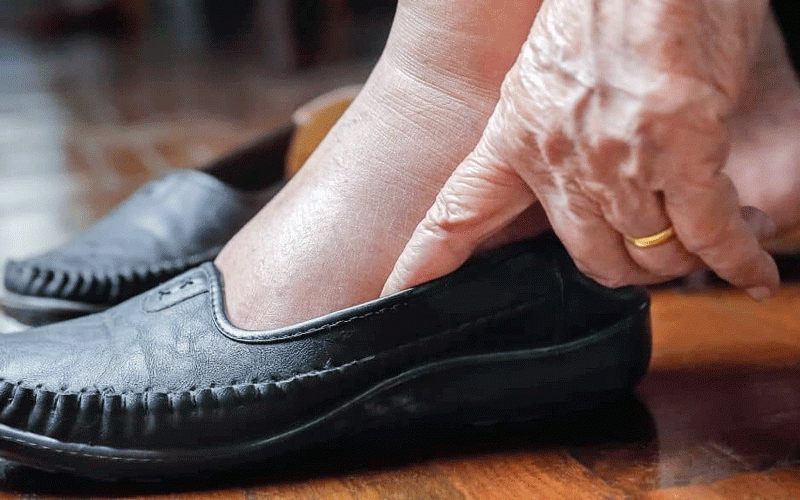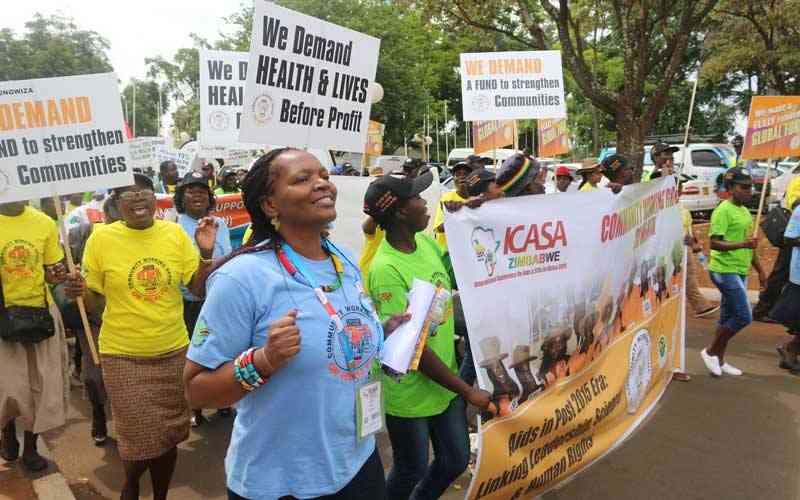
A local headman suspected acts of witchcraft among his people and called a traditional healer (Gaurani) to sniff out the culprits.But Chief Malisa refused. “Gaurani was called here and he spent a week trying to convince me as the Chief to force everyone to go for the witch hunting expedition, I refused to do that,” said the chief.
Speaking on the day to mark the attainment of 500 000 Zimbabweans who completed an HIV behaviour change course in Midlands province, Chief Malisa said while the community suspected witchcraft, the people were succumbing to the HIV and Aids pandemic.
Last week, the same community gathered to witness the graduation of 32 headmen and 868 other villagers in a course on behaviour change in their fight against the HIV and Aids pandemic.
They were taught about the importance of visiting voluntary counselling and testing centres (VCTs), male circumcision, faithfulness, abstinence and early treatment for those already infected.
The Minister of Health and Child Welfare, Henry Madzorera said the country has prioritised prevention in response to the devastating effects of HIV and Aids.
He said three quarters of hospital beds in the country were occupied by people with HIV-related illnesses. As a result, the country’s health delivery system, which was badly affected by a decade-long economic recession, has been stretched beyond limits.
Health officials said Midlands was one of the provinces hardest hit by HIV and Aids because most gold panners engage in casual sex and do not want to use condoms.
- Chamisa under fire over US$120K donation
- Mavhunga puts DeMbare into Chibuku quarterfinals
- Pension funds bet on Cabora Bassa oilfields
- Councils defy govt fire tender directive
Keep Reading
They said children as young as 15 are forced out of school to join the hunt for gold where sexual abuse and prostitution are rampant.
Chief Malisa was hopeful that the HIV behavioural change course, which is being co-ordinated in the province by Midlands Aids Service Organisation (Maso), will save many lives.
“I will be happy if all headmen take their subjects for testing and counselling so that we conquer this pandemic,” said Chief Malisa.Madzorera, who has been married to his wife for the past 24 years, encouraged the people to be faithful.
“I have drunk from my one well for 24 years, if we all do the same we will live longer than the current life expectancy which has fallen to 43,” said Madzorera.
“As we deal with economic challenges and HIV and Aids, we will see this figure rise to 70 years in the next few years.”
NATIONAL BEHAVIOUR CHANGE STRATEGY
National Behaviour Change Strategy for Prevention of Sexual Transmission of HIV for 2006 up to 2010 for Zimbabwe provides guidance to all stakeholders on their contributions to behavioural change promotion over the period.
It spells out key expected outputs and areas of focus necessary for achieving results. It strengthens successful elements of the past response like promotion of condom use, but also focuses on new key aspects.
Epidemiological evidence shows that reducing multiple partners including the promotion of faithfulness in marriage and other long-term relationships has to be in the centre of behavioural change promotion. Underlying root causes of risk behaviours like imbalanced gender relations and stigma associated with HIV will be addressed.
The key areas of focus are the same as those outlined in the National Strategic Plan on HIV and Aids. Focusing on these key areas will result in more concerted efforts and is likely to make a greater impact. — SafAids Zimbabwe











